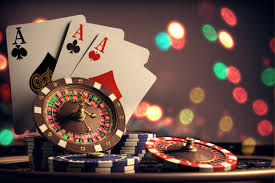The Joker card is a unique and versatile element found in various card games, most notably in standard decks of playing cards. Unlike other cards that belong to specific suits, the Joker is often seen as a wild card, capable of taking on the value of any other jokercard.ca balance. This article explores the history, significance, and various uses of the Joker card.
Historical Background
The origins of the Joker card can be traced back to the 19th century in the United States. It is believed to have evolved from the “Best Bower” card used in the game of Euchre, a popular card game at the time. As the popularity of playing cards grew, so did the role of the Joker, eventually becoming a staple in standard decks.
The Joker’s design and symbolism have varied significantly over the years. Early designs depicted the Joker as a jester or fool, complete with a colorful costume and a mischievous grin. This imagery reflects the card’s association with unpredictability and chaos, making it a perfect fit for its role in games.
The Joker in Card Games
In many card games, the Joker serves as a wild card, meaning it can represent any other card to create a winning hand. For instance, in games like Poker, the Joker can substitute for any missing card, adding an element of surprise and strategy.
Moreover, the Joker can also serve specific roles in certain games. In games like Rummy or Canasta, the Joker can act as a trump card, while in others, it may be removed from the deck entirely. The versatility of the Joker makes it a valuable asset, but also adds an element of uncertainty, as players cannot always predict how it will influence the outcome of a game.
Cultural Significance
Beyond the realm of gaming, the Joker card has taken on cultural significance, often symbolizing chaos, unpredictability, and the unexpected twists of fate. In literature and film, the Joker is frequently portrayed as a trickster figure, embodying the duality of laughter and danger. One of the most iconic representations of this archetype is the character of the Joker from the Batman franchise, who epitomizes the chaotic nature of the card itself.
The Joker has also made its way into various forms of art, music, and literature, further cementing its status as a symbol of rebellion against societal norms. This cultural resonance adds layers of meaning to the Joker card, transforming it from a mere game element into a powerful symbol of human experience.
Conclusion
The Joker card is more than just a simple playing card; it represents chaos, fun, and unpredictability. Its unique role in card games, along with its cultural significance, makes it a fascinating subject worthy of exploration. Whether you see it as a wild card in a game of Poker or a symbol of the unpredictable nature of life, the Joker continues to capture the imagination of players and audiences alike, reminding us that sometimes, the most unexpected turns can lead to the greatest adventures.
